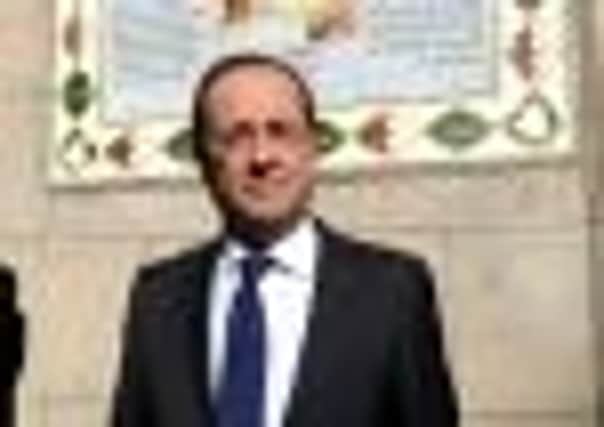French President offers regret but no apology in Algiers speech


On the second day of a state visit to the North African nation yesterday, he told its two houses of parliament: “I recognise the suffering the colonial system inflicted” on the Algerian people.
He specifically recognised the “massacres” by the French during the seven-year war that led to Algerian independence in 1962. The admission was a profound departure from Mr Hollande’s predecessors who defended or remained silent on France’s tormented past with Algeria.
Advertisement
Hide AdAdvertisement
Hide AdThe Socialist president’s visit came as Algeria celebrates 50 years of independence amid continuing tensions.
Seeking to strike a more conciliatory stance than his right-wing predecessor Nicolas Sarkozy whom Algerians viewed as hostile because of his tough immigration policies, Mr Hollande, 58, tried to take a nuanced approach.
“We respect the act of memory, of all the memories. There is a duty of truth on the violence, the injustices, the massacres and the torture,” he said.
But Mr Hollande had limited room for manoeuvre.
A formal apology for France’s colonial past is a sensitive issue. Many French citizens who lived there before independence and who fought in the French army against Algerian insurgents oppose the idea, as do former loyalist Muslim volunteers known as “harkis”.
“I am not forgetting the French of Algeria,” he said, calling on archives from both countries to be made available to reveal the truth of the era. He made no mention of the harkis.
In his previous role as Socialist party leader he had said in 2006 that France should apologise to the Algerian people, but yesterday he fell short of this.
Algerian analyst Farid Ferrahi said Mr Hollande’s visit had failed to deliver as much as it had promised.
“Normalising relations with France won’t get done with a single visit,” Mr Ferrahi said.
Advertisement
Hide AdAdvertisement
Hide AdThe speech came a day after Mr Hollande was greeted by thousands of cheering Algerians on arrival in the Algerian capital. He called for an equal partnership between the two states but said he had not come “to repent or apologise”.
He listed the sites of three massacres, including one at Setif where seven years ago Algerian president Abdelaziz Bouteflika compared French methods to those used by Nazi Germany and asked France to make a “gesture… to erase this black stain.”
The violence in Setif, 190 miles east of Algiers, began on 8 May, 1945, apparently during a celebration of the end of the Second World War. Demonstrators unfurled banned Algerian flags. As police began confiscating them, the crowds attacked the French, killing about two dozen.
The uprising spread and the response by French colonial troops grew increasingly harsh, including bombardments of villages by a French warship. Algerians say some 45,000 people died. France puts the Algerian toll at about 15,000 to 20,000.
Bloodiest of battles led to independence
Up to 1.5 million people were killed in the 1954-1962 Algerian war, as rival factions fought with each other and elements of the French military openly revolted against their own government.
The war also saw one of the most concentrated urban terrorism campaigns in the Battle of Algiers, which started on 30 September 1956 when three women placed bombs at three locations.
The National Liberation Front carried out an average of 800 shootings and bombings a month throughout the early part of 1957. On 1 July, 1962, some six million of a total Algerian electorate of 6.5 million cast their ballots in an independence referendum. The vote was nearly unanimous, with 5,992,115 votes cast in favour of independence.